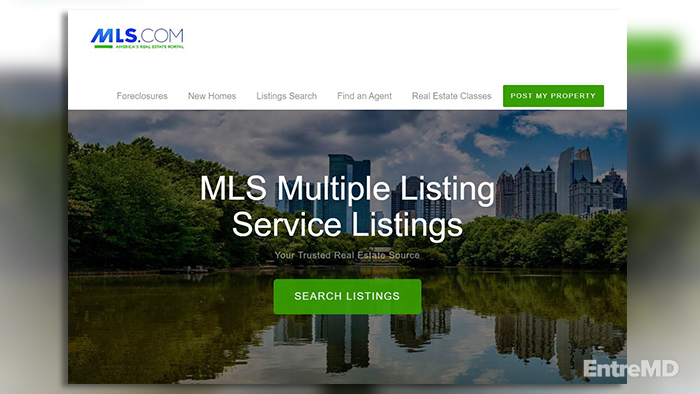
You might be asking what “being a doctor” has in common with real estate. Or whether, as a doctor, it’s advantageous to have a real estate license. These are two excellent questions that I want to unpack with you in this post.
What’s the reality for the average medical student? Nowadays, we graduate with nearly $216,000 of debt, and most of us don’t finish training until we’re in our late 20s or early 30s. At this stage in our lives, we’re qualified to care for the sick, but few of us will have accumulated any long-term financial education and resources along the way.
But once we are launched into our careers, according to the 2022 Medscape Physician Compensation Report, the average physician salary is $260,000 annually for primary care physicians and $368,000 for specialists. The same report also says that physicians who are self-employed — meaning they own their practice or are a partner in private practice — make an average of $385,000 a year, while physicians who hospitals, universities, or clinics employ make an average of $320,000.
So, we start our medical practice seriously in the hole and are eight to ten years behind in preparing for our long-term financial well-being. But through hard work, we can pay off our debt, enjoy a handsome salary and hopefully become financially educated and begin to grow our personal wealth.
Hard work. As doctors, we’re good at this. We’ve had to be, or we wouldn’t have made it through medical school and residency. And once we become full-fledged doctors, we start the hard work of trading time for money. Good money, of course, but if we don’t put in the time, we don’t get the money.
As a doctor, we don’t get passive cash flow, which is best described as not only working for your money but having your money work for you. Creating a passive income has a better return than retirement plans 401(k)/403(b), salting away emergency funds through savings, investing in the stock market, and disability insurance.
Real Estate: The “Investment Of The Wealthy”
One of the very best passive income streams has always been investing in real estate. Real estate can be a great asset because it provides equity, cash flow, tax benefits, and potential appreciation. The real estate market tends to have consistent performance and is less vulnerable to large swings in the market.
Medicine has long roots in real estate as physicians typically bought rather than rented office properties to see their patients. This lets practice partners gain property equity over time, lease space to other providers or vendors, and advertise for new patients. The fact is, building wealth from monthly cash flow and increasing equity is hard to beat.

While times have changed with practice ownership, doctors can use this same model by investing in residential or commercial real estate. Buying properties to rent or lease generates monthly income and equity over time and also offers tax advantages with the depreciation of each asset. This lets you keep more of your W-2 income.
Should You Get A Real Estate License?

Rather than give you a “yes or no” answer, here are some pros and cons of, as a doctor, getting a real estate license.
Pro: You’ll have early access to the Multiple Listing Service.
The MLS is a free search site that anyone can use to find properties for sale across the country. But if you have your real estate license, you can access new listings before they hit the market. Public sites that also provide consumer data get their feeds from MLS aggregators, and there will typically be a lag of 24 or more hours before they pick up the listings.
Realtors get more in-depth information quicker, like when a current listing has a status change. In addition, MLS provides valuable past and present property information like sales prices and comps for comparison. You can see hot neighborhoods and home types that are most popular among buyers to make an informed decision.

In a fast-paced market, where houses often sell in less than a day and buyers have to be prepared to make top-dollar offers in what often turns into a bidding war, staying on top of both current homes for sale and potential up-and-coming listings can be one of the best ways to find the property you want.
That’s where having insider access to an off-market or “pocket” listing can make all the difference. Real estate agents reach out to other agents in their network to see what properties are coming onto the market before they are listed on MLS.
Some states have back-end private listing networks (PLN) within the MLS. This lets an agent post a client’s home before it’s officially on the market, and it also lets a buyer’s agent view homes before they’re listed.
Pro: You’ll save on paying commissions.
Having your real estate license lets you save on paying commissions. When it comes to residential homes, the commission for agents varies, but they usually range between 5-6% to be split evenly between the agents on both sides.

As a seller, that’s a commission that your listing agent would normally receive. As a buyer, it’s a commission you can receive from the seller’s side. Over multiple transactions, these commission amounts can really add up. Some of these commissions are quite significant when the property price runs in the high six or seven figures.
For a $300,000 home, a real estate commission can run about $18,000. Consumers pay an estimated $100 billion in annual home sale commissions. Not having to pay part of that (or gaining part of that) can make a significant financial difference without pulling a single extra night shift.
Pro: You’ll understand the contract’s fine print.
The purchase contract is at the core of every real estate transaction. Whether you’re a buyer, seller, or investor in a deal, it’s crucial to understand the terms and conditions of the purchase contract. Getting your license will help you learn the background behind the terms you agree to while entering a contract.

This understanding puts you in the driver’s seat, where you won’t be signing contracts without fully understanding them and needing to rely on an agent’s expertise.
Con: You’ll need to invest a significant amount of time and a little money.
To qualify for a realtor’s license usually takes 135 hours of coursework, plus two to four weeks of studying before taking the rigorous licensing exam. Depending on your schedule, this could take as little as 10 to 12 weeks – if you can attack it full time.

By the time you’ve gone through all the hoops it will take to qualify as a real estate agent, you’ll have paid around $2,000-$2,500. These costs will come from:
- Education: Before you can sit for your real estate licensing exam, you’ll have to find a qualified and accredited real estate school. The amount and cost of coursework required will depend on your state. Different schools will charge different fees. Online coursework is generally less expensive than in-person schooling.
- State licensing exam fees: Your real estate license application fee will generally cost around $25. You will also have to pay for fingerprinting and a background check. These both cost about $100. The actual state exam fee will vary, but it is generally less than $50. Then you will pay about $150 for the license itself.
The costs don’t end once you get your license. Once you have a real estate license, there will be ongoing costs:
- Real estate broker fees: Next on the list of costs to consider are real estate broker fees. Once you become a licensed real estate agent, you’ll need to be under the umbrella of a local broker. Brokers typically take care of many business expenses associated with day-to-day operations. These include things like photocopies, office supplies, office internet, and Errors and Omissions insurance.
- National Association of Realtors membership dues: You’ll need to be a member of the National Association of REALTORS® to be a realtor. If you don’t want to become a member as a real estate agent, you’ll still likely become a member of your state and local real estate boards. Those have fees associated with them, as does your local Multiple Listing Service. Your local real estate board may require a monthly fee — sometimes paid directly to the association, other times paid to your broker. State association fees vary from state to state but are typically a few hundred dollars, as are the membership dues for the National Association of REALTORS®.
- Real estate continuing education: Your real estate education will continue for as long as you have your license. You’ll have to take continuing education classes to meet ongoing licensing requirements. You can also earn special designations that help define your market niche.
Con: You’ll likely have to share the commission.

Unless you also get your broker’s license, you’ll have to work with a broker and give them their share of the commission. This can range anywhere between 10-50% depending on which state you’re licensed with. Depending on the brokerage you join, there might also be monthly or quarterly “desk fees.”
Con: You’re held to a higher standard and liability.
When you’re representing yourself, especially during a property sale, you’re held to a higher standard and exposed to additional liability. You’re required to understand all the disclosures set forth by your state’s real estate commission.

Once you have your license, you’ll be writing your own offers and submitting paperwork to agents, brokers, lawyers, and the MLS. You won’t have assistance from another expert to review the details of a contract with you.
Con: You might negotiate a worse rather than a better deal.
If you don’t have great negotiation skills, you might miss out on better pricing for a deal. As doctors, we do have experience in negotiating deals, whether it’s with patients or even insurance companies. However, it feels quite different to negotiate directly on a real estate transaction when it’s primarily all about numbers.

So, if the pros outweigh the cons of getting your license as a realtor, here are the steps you’ll need to take:
- Complete prelicensing education requirements as your state dictates.
- Pass the exam and get an official real estate transcript or certification.
- File a real estate license application and wait to hear back. This takes anywhere from a few weeks to several months.
- Complete post-licensing education or first renewal mandated by your state
- Join your local, state, and national real estate boards.
- Fulfill continuing education credits approved by your state real estate commission.
Doctors Can Shelter W-2 Income with Real Estate Professional Status (REPS)
As impressive as the salary stats for doctors are in 2022, the average doctor may end up paying up to 35% of your W-2 income in taxes. However, you can cut that figure significantly with a REPS.
A Real Estate Professional Status is essentially a tax status within the IRS. It doesn’t require you to become a realtor or leave your profession to become an active realtor. The IRS allows real estate professionals to deduct their losses from their taxable income.
There are two primary qualifications to get this status:
- Your material participation in real property trades and businesses needs to account for at least 50% of all the personal services you gave in a calendar year.
- You need to spend over 750 hours in actual trade and businesses involving your material participation.
Material participation simply translates as declaring real estate to be your primary profession. For physicians devoting most of their time to clinical services, it’s possible to have your spouse (non-working or part-time working) qualify for real estate professional status. You’ll have to file taxes jointly to make this strategy work.

The beauty of the IRS is that it allows you as a REPS to claim a wide variety of deductions for rental properties. Some of these deductions include depreciation, repair or maintenance expenses, insurance, and any expenses incurred for necessary supplies.
You can also deduct any losses incurred within rental properties from your W-2 income. This allows you to enjoy the benefits of cost segregation and take a massive income tax benefit through “phantom expenses.”
Do you think getting your real estate license can be beneficial to you as a doctor? Or does the idea of REPS have more appeal?
Whatever your thoughts, I think we can all agree that in today’s day and age, having more than one income stream is important. And finding an income stream that creates passive income rather than demanding more of our time is something that I’m certainly interested in!
I’d love to hear your thoughts on this. You can contact me here to get a conversation started!

